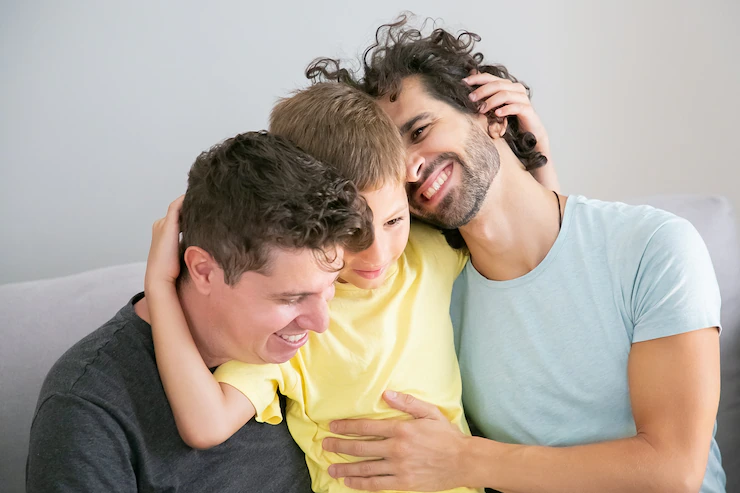Introduction
Fatherhood encompasses a range of experiences and family structures, including those within LGBTQ+ families. In these families, fathers play essential roles in raising children, providing love, support, and guidance. However, due to societal norms and stereotypes, the experiences of LGBTQ+ fathers and their unique parenting models are often overlooked or misunderstood. In this article, we will explore the significance of fatherhood in LGBTQ+ families and the importance of embracing diverse parenting models.
- Celebrating Fatherhood in LGBTQ+ Families
Fatherhood in LGBTQ+ families is a powerful testament to love, commitment, and resilience. Whether through adoption, surrogacy, co-parenting, or blended families, LGBTQ+ fathers demonstrate their dedication to providing a nurturing and supportive environment for their children. It is important to celebrate and acknowledge the unique journey of LGBTQ+ fathers and the invaluable role they play in their children’s lives.
- Challenging Gender Stereotypes
LGBTQ+ families challenge traditional gender roles and stereotypes associated with fatherhood. In these families, fathers may defy societal expectations and assumptions, contributing to a more inclusive and progressive understanding of fatherhood. By challenging these gender norms, LGBTQ+ fathers open doors for new perspectives on what it means to be a loving and involved father.
- Nurturing Parent-Child Relationships
LGBTQ+ fathers cultivate strong and loving relationships with their children, just like fathers in any other family structure. Their commitment to providing emotional support, guidance, and care is paramount in creating a healthy parent-child bond. LGBTQ+ fathers offer their children the same opportunities for growth, development, and happiness as any other father would.
- Advocating for LGBTQ+ Parental Rights
LGBTQ+ fathers often face unique legal and societal challenges related to parenting, such as adoption rights, custody battles, and discriminatory practices. It is important to advocate for LGBTQ+ parental rights, ensuring that fathers within these families have equal access to legal protections, support systems, and resources. By advocating for these rights, we create a more inclusive society that recognizes and values the contributions of LGBTQ+ fathers.
- Building Supportive Communities
Supportive communities play a crucial role in the well-being of LGBTQ+ fathers and their families. Creating spaces where LGBTQ+ fathers can connect, share experiences, and seek guidance is essential. Support groups, community organizations, and online platforms provide valuable resources and networks for LGBTQ+ fathers to access support, share their triumphs and challenges, and find encouragement in their parenting journey.
- Education and Awareness
Education and awareness are key to fostering understanding and acceptance of LGBTQ+ fatherhood. By promoting LGBTQ+ inclusive curricula in schools, workplaces, and community organizations, we can challenge biases and promote a more inclusive understanding of family structures. This education should extend to healthcare providers, educators, and policymakers to ensure LGBTQ+ fathers and their families receive the appropriate support and services.
- Embracing Diversity in Fatherhood
It is crucial to embrace diverse parenting models, including those within LGBTQ+ families. Recognizing that fatherhood is not limited to one specific gender or biological connection allows us to appreciate the diverse ways in which love, care, and guidance can be provided to children. Embracing diversity in fatherhood fosters a society that values the unique experiences and contributions of LGBTQ+ fathers and supports their ability to raise happy and healthy children.
Conclusion
Fatherhood in LGBTQ+ families is a beautiful and important aspect of parenting that should be celebrated and supported. Embracing diverse parenting models not only benefits LGBTQ+ fathers and their children but also enriches our understanding of fatherhood as a whole. By challenging stereotypes, advocating for LGBTQ+ parental rights, building supportive communities, promoting education and awareness, and embracing the diversity of fatherhood, we can create a more inclusive society where all fathers and families are valued and respected.










